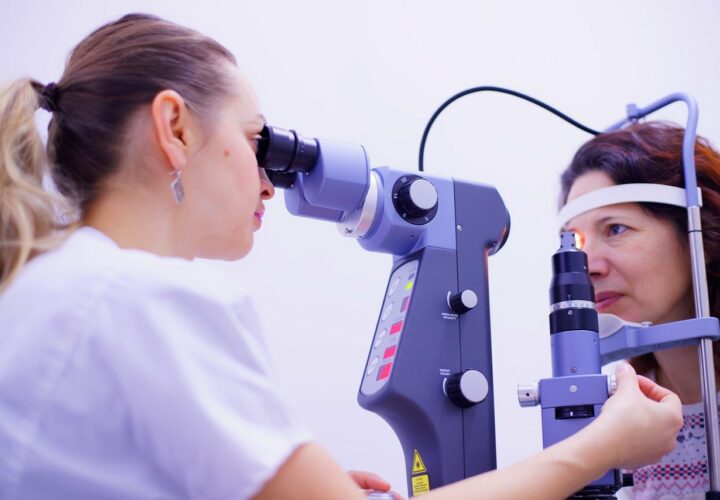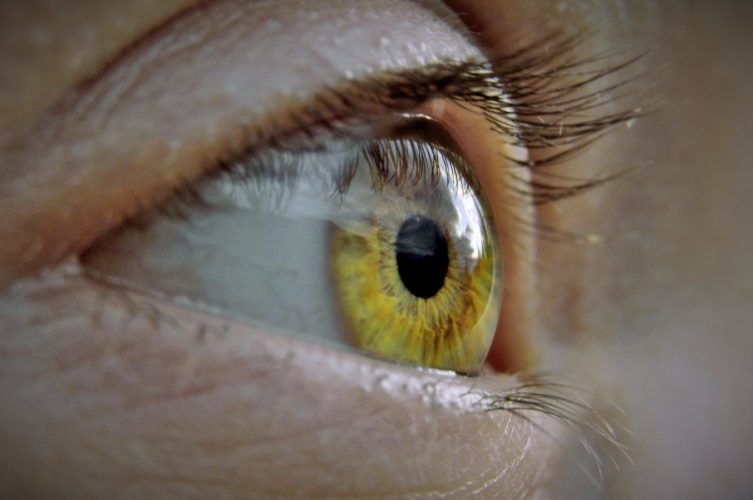New research indicates cataract surgery may lower dementia risk.
As the population ages, the number of people in the United States with vision loss is projected to double by 2050. Research has shown that visual impairment in aging is linked with not only physical problems, but also with psychological issues and cognitive dysfunction. Here’s the encouraging news: vision loss can be addressed, and new research shows just how helpful this may be in reducing dementia risk.
In a recent study, published in JAMA Internal Medicine, scientists took a closer look at the link between dementia risk and cataracts. The team found that older adults who underwent cataract surgery — a procedure for removing the clouded lens to restore vision — had nearly 30 percent lower risk of dementia, compared to those diagnosed with cataract and did not undergo surgery.
According to the study’s lead author Dr. Cecilia Lee, an ophthalmologist and associate professor at the University of Washington School of Medicine, cataracts are a leading cause of correctable blindness in older adults worldwide. In aging, the lens of the eye becomes yellow and cloudy, obscuring people’s vision: Difficulty driving at night, blurry vision and seeing halos around bright lights can all be symptoms of cataract, she told Being Patient.
“Since this is the most common [age]-related eye condition that impacts vision and visual function in older adults,” Lee said, “we wanted to know whether cataract surgery would be associated with decreased risk of developing dementia in the future.”
For the study, Lee and colleagues, including Dr. Eric Larson and Dr. Paul Crane, collected data of older adults from an ongoing, longitudinal study at Kaiser Permanente Washington. The team tracked 3,038 participants of the study who had a cataract diagnosis. During the follow-up period, which averaged 7.8 years per person, roughly half of this group, 1,656 people, did not have their cataracts removed, and 853 participants developed dementia.
Want to learn more about clinical trials
for Alzheimer’s and dementia?
Check out the Lilly Trial Guide.
After accounting for factors like education, race and smoking status, the researchers found that participants who had undergone cataract surgery were much less likely to develop any form of dementia over time, compared to those who did not receive the surgery. This link remained significant after the researchers controlled for a host of additional variables, including diabetes, high blood pressure and heart disease.
Lee and colleagues also analyzed data from 728 participants with glaucoma, a common age-related eye disease, who served as a control group. Surgery for glaucoma aims to slow glaucoma progression, but it doesn’t improve vision. The researchers observed no association between dementia risk and glaucoma surgery.
The team has several hypotheses to explain the connection between cataract surgery and dementia. For one, Lee suggested that people with poor vision may be less likely to socialize, exercise and at higher risk of depression, factors shown to be linked with people’s likelihood of developing dementia. Further, when a person’s vision is impaired, she theorized, this could strain cognitive function, because the brain is devoting more resources to processing visual information.
On the other hand, Lee suggested, increased visual stimuli following cataract surgery could be beneficial for brain health, potentially leading to greater neuronal connections; cataract surgery may also enable better quality of light entering the retina, which could stimulate specialized cells that research has previously shown is linked with cognition and regulates sleep cycles.
The study has several limitations. Like any observational studies, Lee said there may be factors that weren’t accounted for, though it’s less likely that any single one of these other variables could explain the major difference in dementia risk. She noted that it remains unclear whether ethnicity plays a role, given that the study included mainly white participants.
Moving forward, the team plans to study the association between cataract surgery and dementia in a larger, more diverse population. They are also gathering more information about participants’ eye health, including imaging results, to look for retinal biomarkers that could predict the likelihood of dementia.




